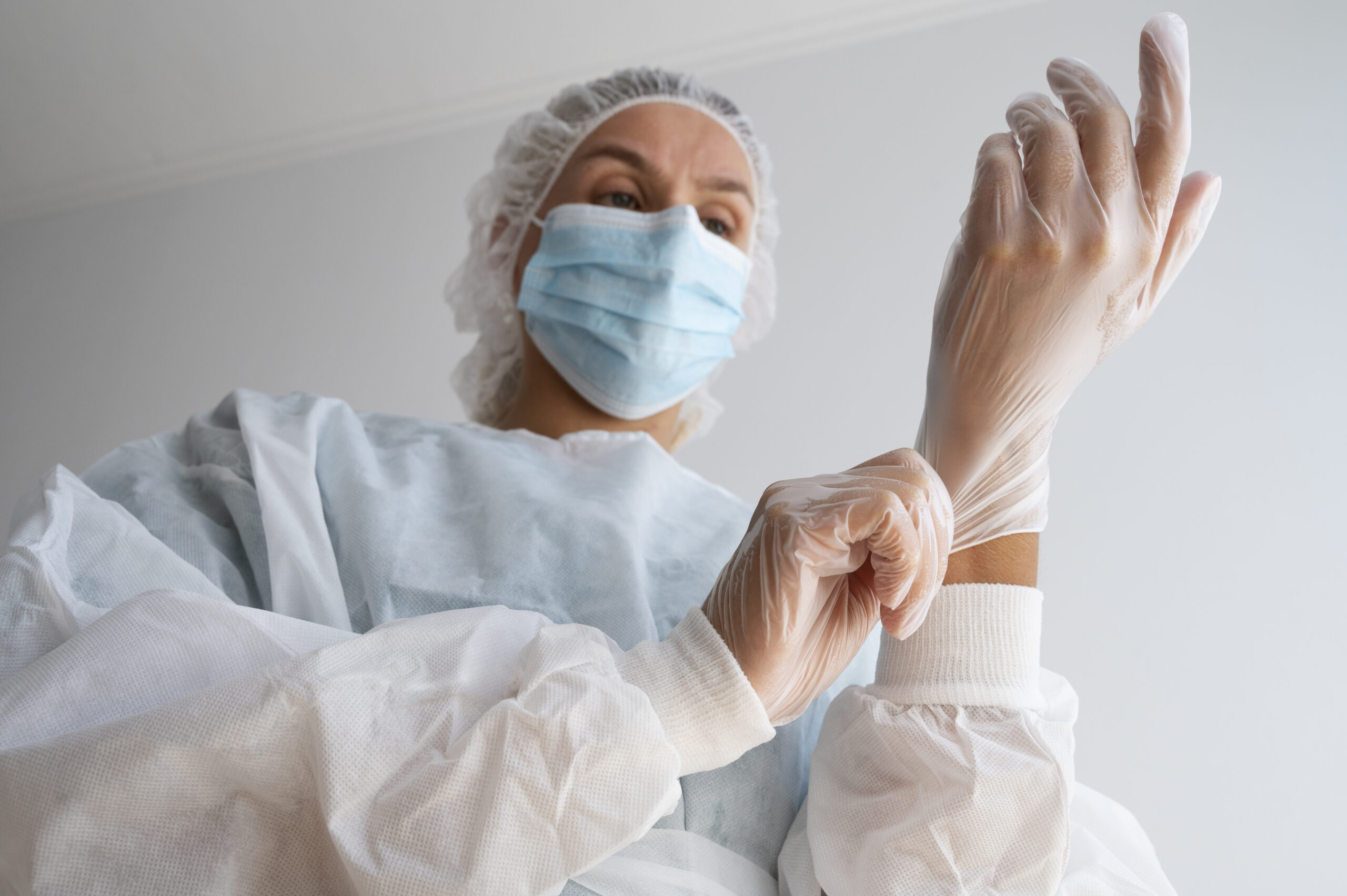Flexible Sigmoidoscopy in Thibodaux, LA
What is a flexible sigmoidoscopy?
A flexible sigmoidoscopy is an endoscopic exam where a long, thin, bendable tube, or “scope,” is positioned into the rectum and then guided throughout the lower third of the large intestine. The scope is equipped with a camera and a light at its end, which allows your gastroenterologist to closely inspect the colon’s lining. A sigmoidoscopy can be carried out if you have:
- Diarrhea
- Concerning X-ray results
- Abdominal pain
- Bleeding
- A need to screen for polyps and/or colon cancer
Our GI providers commonly perform flexible sigmoidoscopies for Thibodaux, LA patients. In the event that you are dealing with any concerning symptoms in relation to your gastrointestinal tract like those listed above, consult with your nearest Digestive Health Center to find out if a flexible sigmoidoscopy could be right for you.

What can I expect the day before my flexible sigmoidoscopy?
You will be given instructions from your provider in regard to the necessary bowel prep needed leading up to your procedure. You will likely be on clear liquids for 24 hours prior to the exam and nothing any later than midnight except for medications. It is imperative that you adhere to the directions given to you by your Digestive Health Center specialist to ensure you’re properly prepared. In addition, there will be directions pertaining to any medicine you are currently taking. In most cases, any medications can be taken as usual. However, occasionally, especially in individuals on blood thinners (i.e. Plavix®, Coumadin®, warfarin, aspirin, NSAIDs) and in diabetics, other instructions may be provided.
What should I expect on the day of my flexible sigmoidoscopy?
You will be instructed to arrive at the endoscopy center 1 – 1.5 hours before your flexible sigmoidoscopy. This will allow time to fill out paperwork and prep for the procedure. You’ll be instructed to don a medical gown. In most cases, no IV will be started since sedation is typically not given with this procedure. You could be connected to technology that allows our gastroenterology team to watch your heart rate, blood pressure, pulse, electrocardiogram, breathing, and oxygen level throughout and following your procedure.
Once in the exam room, you’ll be instructed to lie on your left side on the treatment table. Your provider will begin by carrying out a rectal exam. The sigmoidoscope will then be gently inserted just inside the rectum and gently advanced throughout the sigmoid colon. A small amount of air is injected through the scope into the colon to help the provider see better. Pending on the findings of the exam, a few things can be done at the time of the procedure including removal of polyps, control of bleeding, and biopsies. At the end of the exam, all possible remaining fluid and air are suctioned out of the colon via the scope. The exam usually takes 5 – 15 minutes to conduct. However, if our Thibodaux, LA team finds the need to perform any other procedures at the time, it may take a bit longer.
Because sedation is not usually necessary, you can change back into your clothes and leave the endoscopy center right away. Assuming sedation is not utilized, you will also be allowed to perform your normal activities, like driving or going to work. The majority of people are able to eat and drink regularly following their release, however, personalized directions related to eating, medication, and activities will be provided. After the exam, your provider and/or nurse will go over the results of the procedure with you. You will also be sent home with a typed report to reference as needed. We will follow up with you on your biopsy results within about seven days.
Are there risks with a flexible sigmoidoscopy?
In general, a flexible sigmoidoscopy is a very safe test. Complications are rare and are generally only experienced by 1% or less of patients. Most of the time, complications are not serious; still, if a complication occurs, it could require hospitalization and surgery. Before the exam, a consent form will be discussed with you by our staff. If any concerns or questions arise, these should be discussed with your provider ahead of the exam.
Bleeding may happen with biopsies and the removal of polyps. A concerning amount of bleeding, which could necessitate a blood transfusion or hospitalization, is extremely uncommon. Still, bleeding can happen during the exam or anytime within two weeks after the test in the event that a polyp is removed.
Perforation or puncture of the colon may occur. Your provider may realize this at the time of the exam, or it might not be apparent until later in the day. In most cases, a puncture will require surgery and hospitalization. This is an atypical complication, even in the event that polyps are extracted. It is vital that you contact us right away if symptoms present after the exam like worsening abdominal pain, bleeding, or fever.
Like any other procedure, a sigmoidoscopy is not perfect. There remains a slight, acknowledged chance that tissue abnormalities including but not limited to polyps and cancers can be overlooked at the time of the exam. It is of the utmost importance to remain vigilant and to maintain any routine follow-up appointments as instructed by your provider and inform them of any new or recurring symptoms. Please speak with your Digestive Health Center team if you have any questions or concerns.
What are the alternatives to a flexible sigmoidoscopy?
To a large degree, the alternatives to the flexible sigmoidoscopy depend upon the reason for needing to undergo the exam to start with. There exist different X-rays in which we can look at the colon, such as a virtual CT scan or a barium enema. These tests, however, are diagnostic exams only and treatment of any suspected anomalies will require a sigmoidoscopy, colonoscopy, or surgery.
Flexible Sigmoidoscopy FAQs
How reliable is flexible sigmoidoscopy for identifying issues in the colon?
Flexible sigmoidoscopy is a reliable diagnostic method for identifying conditions in the lower colon, including polyps, cancers, and conditions related to inflammation. It primarily inspects the sigmoid colon and rectum. For detecting conditions in the upper colon, a complete colonoscopy may be suggested as flexible sigmoidoscopy does not cover these areas.
How frequently should one undergo flexible sigmoidoscopy to screen for colon cancer?
Screening intervals for flexible sigmoidoscopy can differ based on individual health profiles, including age, familial colon cancer history, and overall health status. Typically, individuals at average risk are advised to undergo this procedure every 5 to 10 years, beginning at age 45. Your healthcare provider will tailor the screening frequency to your particular health needs.
What steps should be taken if symptoms develop post-flexible sigmoidoscopy?
Experiencing mild symptoms such as gas or bloating after a flexible sigmoidoscopy is typical. However, should you encounter severe symptoms like ongoing pain, significant bleeding, or a fever, immediate contact with your healthcare provider is crucial. These symptoms could be signs of more serious complications like a perforation or intense irritation, which necessitate urgent care.

